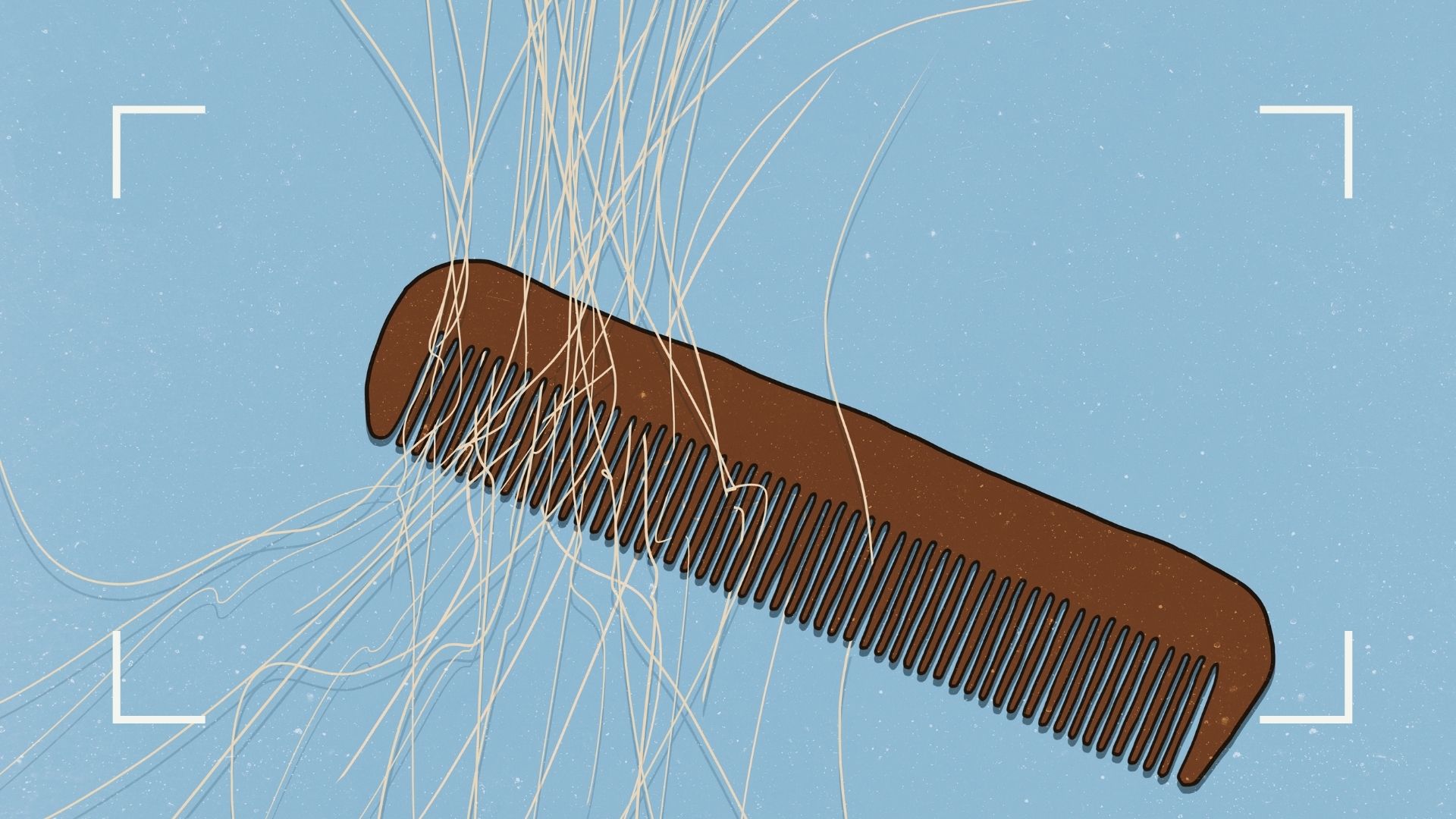Why is my hair falling out? Experts reveal the leading causes of hair loss in women
The causes of hair loss are somewhat unknown, even though more than half of women experience it

Getting behind the true causes of hair loss can help to understand an otherwise incredibly distressing condition, as misinformation about what causes someone to lose their hair is rife.
All our hair goes through three phases in its lifecycle: anagen, catagen and telogen. It then sheds naturally during the final stage, called exogen. While it's perfectly normal to lose hair during this stage in the shower, while brushing or just moving about, some people can experience an accelerated rate of shedding.
From seasonal changes to the unexpected impact of menopause, the causes of hair loss for one woman may not be the same as another. For the best advice around hair thinning and alopecia, speak to your doctor.
Common causes of hair loss
1. Stress
Stress is undoubtedly one of the most common reasons behind hair loss as it can lead to telogen effluvium, commonly known as excessive hair shedding.
"During stressful periods, your hair may be shocked from the growing phase to the resting phase resulting in shedding a few months later," says Stephanie Sey, expert trichologist for Nizoral.
This is because the rise of cortisol in the body, the hormone that contributes to feelings of stress, weakens our defenses against naturally-existing microbes in the scalp. This, in turn, leads to dryness and flakiness.
"Stress can often trigger excessive tugging of hair when styling it or habitual scalp scratching," she adds, emphasizing the need to be aware of how to reduce stress. "These habits will damage your scalp and affect the condition of your hair."
Sign up to our free daily email for the latest royal and entertainment news, interesting opinion, expert advice on styling and beauty trends, and no-nonsense guides to the health and wellness questions you want answered.
It's because of this stress that many people have questioned if weight loss drugs like Wegovey and Ozempic cause hair loss, as rapid weight loss puts the body under huge amounts of pressure.
2. Nutrition

What you eat can certainly contribute to hair loss for some people, Dr Kumaran explains. "There are many nutrients that are essential for hair growth."
These include:
- Iron
- Vitamin B12
- Folic acid
- Vitamin D
- Zinc
- Biotin
- Silica
- Magnesium
- Collagen
- Protein
- Essential fatty acids
If your diet is missing these key nutrients then it's rare that your hair will be the only part of the body impacted. "It's likely to be accompanied by other symptoms such as tiredness, low energy, brain fog and muscle pain to name a few," Dr Kumaran says.
"It's important to consume a broad, diverse, balanced diet, and limit foods that are processed and contain refined sugars to ensure optimal nutrition for healthy hair growth."
It's also important to avoid processed foods, like fast-food and ready meals, explains Stephanie Sey, as these are typically high in sugar, salt and unhealthy fats as well as chemical additives. "They typically have very little in the way of nutrients that our body needs to stay healthy, such as vitamins, minerals and antioxidants," she says.
"The hair is the very last system in your body to receive nutrients as it's one of the least essential. So if your body is not receiving adequate nutrients, your hair will likely be affected," she adds.
However, as research from Houston Methodist Hospital suggests, there's no guarantee that incorporating particular foods with certain nutrients will prevent hair loss—or make it grow back. Studies around the causes of hair loss in general are limited and more trials are required around the subject.
3. Genetics
Hair loss resulting from certain genetics is thought to be more common in men. But actually, over 50 percent of women will experience female pattern hair loss by the time they're 80 years old, according to research from the University of British Columbia.
"With hereditary hair loss, thinning will typically begin at a much earlier age, around the age of 20 or 30. However, in women, this is predominant after menopause, when in combination with the hormonal changes," Dr Kumaran says. "Women with this pattern of hair loss will experience generalized thinning of the hair across the top of the head and the front hairline."
In combination with other factors, such as nutrient deficiencies, genetics is likely to be one of the most common causes of hair loss.
4. Menopause

Hair loss as one of the symptoms of menopause is very common, due to the hormonal changes taking place in the body at this time. "During and after menopause, the natural production of estrogen and progesterone hormones decline and the production of androgens increases," explains Dr Nirusa Kumaran, medical director and founder of Elemental Health Clinic.
"For healthy hair growth, it is essential to have optimal hormonal balance. As estrogen and progesterone production declines, new hair growth diminishes and the visual impact of hair loss appears more pronounced," she adds.
"Consequently, the rise in androgen hormones also causes increased hair loss on the head, and may result in hair growth on other parts of the body."
5. Post-pregnancy
It's also very normal to lose hair after going through pregnancy. This is likely to only be one of the temporary causes of hair loss as much like how changing hormones may cause someone to lose their hair in menopause, the dip in estrogen after giving birth is responsible for hair loss post-pregnancy.
"After someone gives birth, there is a massive dip in female hormones. This sharp change in estrogen and progesterone levels, both of which play a vital role in promoting hair growth, can lead to hair loss," says Dr Martin Wade, consultant dermatologist at The London Skin and Hair Clinic.
"A much milder effect can occur when someone stops taking an oral contraceptive pill as similar hormones are used in these."
6. Seasonal shedding
Losing more hair after a change in the seasons is very normal, research from the University Hospital of Zürich indicates. Especially after the switch from summer to autumn, as temperature and sunlight levels drop.
During the colder months, our scalps don't need so much protection from the sun so less hair is grown—shifting more hair into the telogen phase, which leads to natural shedding.
"The pineal gland in the brain, which secretes melatonin and modulates hair growth, is exposed to less light stimulation through the sun," explains Dr Wade. "This has a consequence for hair growth as the process by which the pineal gland secretes melatonin is dictated by light."
Can dandruff cause hair loss?
This is a common misconception, trichologist Stephanie Sey explains. "Whilst the answer is no, the inflammatory component of seborrheic dermatitis can cause some excessive shedding."
It's very easy to get rid of dandruff, however, if it is making you feel uncomfortable.
Another cause, she says, can be if your scalp is particularly itchy. "You may scratch the hair more than normal, which can damage the scalp and in some cases, this can lead to hair loss."
Miriam worked for woman&home for over five years and previously worked on the women's lifestyle magazines Woman and Woman's Own.